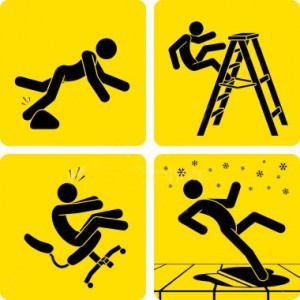The Basics Of A California Workers Comp Claim

Workers’ Compensation Law Claim Basic Legal Information –
Basics of a California Workers Comp Claim – California workers compensation is an insurance benefits system where employers are required by law to carry insurance that covers employees who experience an injury on the job. The benefits are to be provided regardless of fault, meaning that workers’ compensation is available even where the employer was not negligent in causing the injury or health condition of the employee. In general, where an injury is shown to arise out of and in the course of the job, it qualifies to pull from the insurance policy. However, there are several exceptions that potentially disqualify an applicant from receiving altogether. Due to the intricate claims process and potential disqualifying events, most people seek professional help from a California injury lawyer in their area to run their case and enforce their statutory rights under the Labor Code. A California work injury attorney should be contacted for help with case specific information, whereas the information provided in this article is general in nature to provide an overview of the basics of a workers’ comp. claim., including what benefits are potentially available and under what conditions an employee might collect them.
What Types Of Injuries Are Covered?

Basics Of A California Workers Comp Claim
Any type of injury whatsoever is covered so long as it arises out of and in the course of one’s job. Some exceptions include but are not limited to those injuries brought about by intoxication or engagement in mutual combat where the claimant is the initial aggressor. For more exceptions, and to be sure your claim is viable, be sure to call me at 844-584-8444 to discuss the particulars of your workplace accident or repetitive work activities claim. Where an injury that would be covered occurs and is not reported until after notice of termination or layoff, and where no medical records exist referencing the injury prior to notice of termination or layoff, the claim will generally be barred under Labor Code 3600’s post-termination bar.
There are exceptions to this rule including but not limited to:
- where the mechanism of injury is cumulative in nature and the employee was unaware of actual injury until after notice of termination or layoff;
- where the case is of toxic exposure and the employee was unaware of the exposure or injury therefrom before notice of termination/layoff;
- where it is shown that there was not opportunity to report the accident until after being let go.
These three examples represent just a few circumstances that if shown to be true by the applicant could overcome the post-termination bar to recovery. Whether any of the above exceptions apply is a highly fact sensitive question, litigation is often necessary to resolve claims which the insurance company disputes as filed post-termination. If you believe that your claim may be barred by a post-termination filing, consult a California work injury lawyer immediately to learn your rights and to obtain legal representation to go to battle in the courts.
What Types Of Benefits Are Potentially Available?
Benefits under California workers compensation insurance include:
- temporary disability indemnity money;
- permanent disability indemnity payments;
- medical care to cure or relieve industrial health condition;
- mileage reimbursement for miles driven to and from the doctor;
- job retraining (current injury year voucher is $6,000.00);
- payment of emergency medical services needed and obtained at time of accident.
Whether any of the foregoing will apply and at what rate they will apply to a particular claim depends on the type and severity of the health condition, as well as the workers ability to heal and perform their customary job duties. To a large extent, the primary treating physician and second opinion doctor (PQME/or/AME Physician) will decide on nature and extent of the claimed industrial health condition and thus will generally determine what is available and when to the injured worker. The lawyers will argue the facts and make sure the correct procedures are followed to obtain medical reports and compensation.
What About Employer Negligence Claims In Superior Court?
The short of it is that an employee is generally barred from suing their employer for negligence that results in a work related injury situation. This is because employers who carry workers compensation in California are immune from being sued by their own employees where the company provides workman’s compensation benefits on a no fault basis. Where an employer negligently causes injury to one of its own employees, regardless of mechanism, is vulnerable to a negligence case against them in Superior Court. However, where no negligence exists on the part of the employer, the employee can claim benefits with the UEF (Uninsured Employer’s Fund). That fund could (eventually) provide for the employee just like an insurer would (talk to a lawyer if your company doesn’t have insurance), and then the State will attempt to collect what it paid out (with penalties) against the uninsured company.
What If Someone Other Than The Employer Caused Injury?

Negligence Claim
This is known as a 3rd party claim. If a third party were to injure, harm you or (someone other than the employer) caused the problem that led to the injury, the employee will also have a negligence lawsuit against that third party in addition to a work comp claim. This is often where the claim is caused by an auto accident while the employee is out on the road during their employment. Since all negligence cases must be filed in court within a certain time frame (similar but more strict than workers compensation cases), it is important to consult with an attorney as soon as possible to protect your right to hold the case in a court of law.
As a general rule, a claim against a government entity must be submitted and received by the correct government entity within 6 months from the date of the accident giving rise to the case. For claims against private parties, the correct and appropriate papers must be filed in the correct court of competent jurisdiction no more than 2 years from the date of injury. For a more specific analysis of the exact date your cause of action must be filed, contact a California Injury Lawyer. You must speak to a lawyer about the specific facts of your case to get accurate legal analysis as to the statute of limitations period for a possible lawsuit.
Need Help With Your Possible Lawsuit and Understanding Some of The Basics of a California Workers Comp Claim?
We are here to speak with you right now! He will speak to you the same day that you call when you telephone his law firm at 844-584-8444. Most of the time he is available to speak with you right when you call. When he is busy, he finds time later in the day to see if he can offer his representation to you on a contingency fee. A contingency fee means that any attorney fee is a percentage of whatever money is recovered in the action. No money is owed in the form of costs or attorney fees unless money is collected. Consultations are always free. See if you can get professional protection today! We may be able to help you like we have helped so many others with the Basics Of A California Workers Comp Claim.
